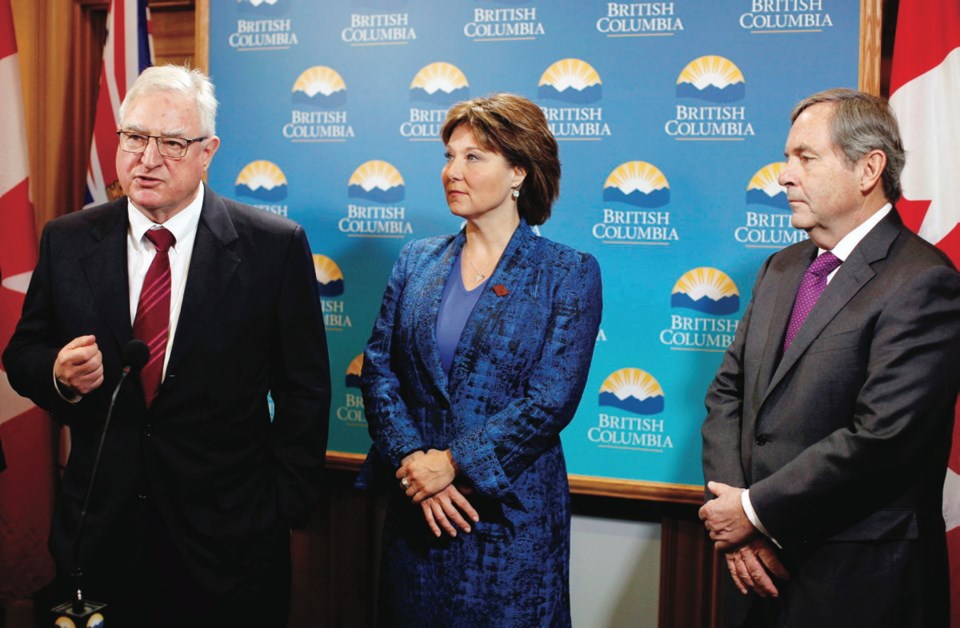U.S. President Donald Trump’s administration, although unpredictable, might offer new opportunities for a softwood lumber deal with Canada, Premier Christy Clark said Thursday.
Clark said U.S. negotiators under former president Barack Obama showed no interest in reaching an agreement despite persistent efforts by Canada.
“So unpredictable change can sometimes be good if it means that we have an administration that’s really, for the first time in a long time in the United States, interested in getting this agreement resolved,” she said.
Clark made the comments following a special cabinet meeting in Victoria with B.C.’s new trade envoy David Emerson and Canada’s ambassador to the United States David MacNaughton.
MacNaughton said Canada succeeded in raising the softwood issue with U.S. officials in advance of a recent meeting between Trump and Prime Minister Justin Trudeau.
“For them, it’s a minor issue,” he said. “They see it as being a small regional issue and I think the most important thing that we did was to impress on them how important it was to Canada — that this isn’t simply a small regional issue from our perspective; it’s a national issue that affects hundreds of communities right across the country. I think they got the message.”
Clark agreed, saying Trudeau’s meeting with Trump was a “great beginning” to the relationship. “I think that bodes well for Canada,” she said. “It starts us off on the right foot in terms of being able to get some agreements with our neighbors south of the border.”
Clark said 60,000 jobs and 140 communities rely on the forestry industry which shipped about $4.5 billion worth of lumber to the U.S. in 2016.
The 2006 softwood lumber agreement expired on Oct. 12, 2015, and the U.S. industry filed a petition last November alleging that Canadian lumber is unfairly subsidized — a charge that B.C. says Canada has always succeeded in disproving.
Emerson, former federal cabinet minister and chief executive officer of Canfor Corp., noted that the softwood lumber issue has never been driven by the U.S. president.
“It’s always been about a protectionist group that has accumulated tremendous power over the years, particularly in congress, using devices that are legal under the [North American Free Trade Agreement], legal in the United States, to basically shake down Canadian industry.”
Emerson said a lot has changed on the political and industry landscape in the decade since he signed the last softwood lumber agreement as federal minister of international trade.
“I would not approach it as though we can just re-darn the old socks and we’ll be fine,” he said. “I think we have to take a fresh look at it.”
NDP forestry critic Harry Bains said the Liberal government should have got aggressive with the U.S. much sooner.
“But they were so busy promoting [liquefied natural gas] and they ignored everything else — including the softwood issue and the forest industry,” he said. “So I think it’s a last-ditch kind of effort that they’re trying to revive their position, but I’m not very happy the way they’ve handled this file so far.”



